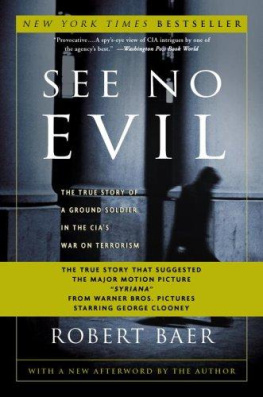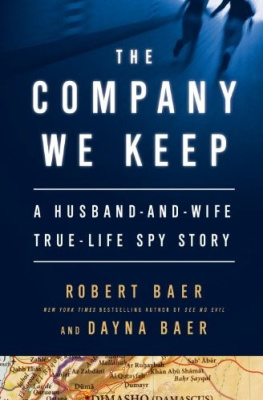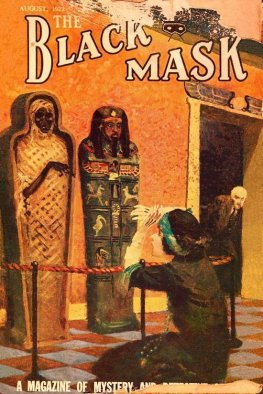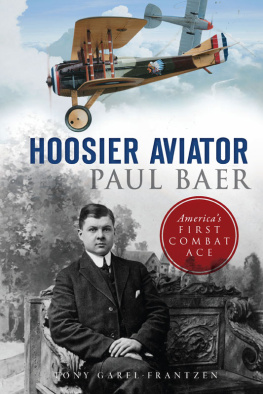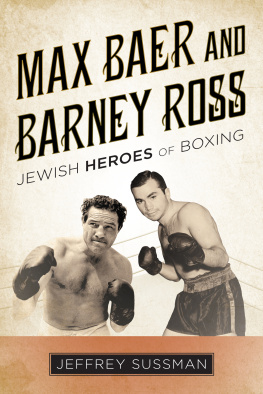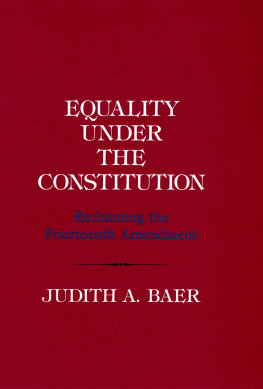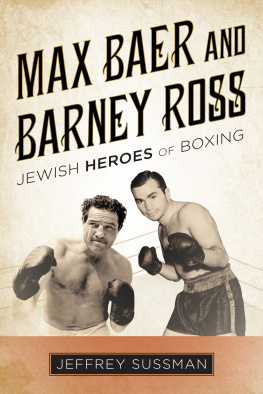Robert Baer - Blow the house down
Here you can read online Robert Baer - Blow the house down full text of the book (entire story) in english for free. Download pdf and epub, get meaning, cover and reviews about this ebook. genre: Detective and thriller. Description of the work, (preface) as well as reviews are available. Best literature library LitArk.com created for fans of good reading and offers a wide selection of genres:
Romance novel
Science fiction
Adventure
Detective
Science
History
Home and family
Prose
Art
Politics
Computer
Non-fiction
Religion
Business
Children
Humor
Choose a favorite category and find really read worthwhile books. Enjoy immersion in the world of imagination, feel the emotions of the characters or learn something new for yourself, make an fascinating discovery.
- Book:Blow the house down
- Author:
- Genre:
- Rating:4 / 5
- Favourites:Add to favourites
- Your mark:
- 80
- 1
- 2
- 3
- 4
- 5
Blow the house down: summary, description and annotation
We offer to read an annotation, description, summary or preface (depends on what the author of the book "Blow the house down" wrote himself). If you haven't found the necessary information about the book — write in the comments, we will try to find it.
Blow the house down — read online for free the complete book (whole text) full work
Below is the text of the book, divided by pages. System saving the place of the last page read, allows you to conveniently read the book "Blow the house down" online for free, without having to search again every time where you left off. Put a bookmark, and you can go to the page where you finished reading at any time.
Font size:
Interval:
Bookmark:
Robert Baer
Blow the house down
PROLOGUE
Years later, after the unthinkable happened, I would remember where I was when it all started: in a car on the Beirut-Damascus highway, still a young man who believed the good guys always won and with no idea that the colleague I was trying to contact on the radio was already facing his executioner.
"Carson, Carson, this is Lone Wolf. Over."
Damn, still no answer.
"Carson" was Buckley's radio call sign-Bill Buckley, the CIA chief of station in Beirut. It was March 16, 1984, and I had a meeting with him at eleven-one I wasn't going to make. There'd been a firefight earlier that morning in Aley, and a Druze militia checkpoint was backing up traffic.
Bill wouldn't be surprised. Long ago he'd gotten used to my not being where I was supposed to be, operating solo, disappearing for days at a time, dragging in who knows what.
When Bill had me come work for him in Beirut in 1983, he assigned me
the radio call sign "Lone Wolf." Everybody else had towns in Nevada. The nickname stuck.
"Anyone copy? This is Lone Wolf."
Someone finally keyed a radio. I heard static; then Art, the commo chief, came up on the net: "Lone Wolf, get off net immediately. Return to Reno ASAP."
I switched off my Motorola, wondering what the fuck was going on.
Only when I got into the station did I learn Buckley had been kidnapped two hours earlier.
Bill left the house every day at exactly twenty to eight, and that morning had been no different. He took the elevator to the ground-floor garage, where he checked carefully underneath his car for a bomb before starting the engine, because while Bill was regular, he was also cautious, and the Honda's underside had no armor. Satisfied, he backed out of his parking space-the same space every day-and started for the garage exit.
My guess is that Bill looked in his rearview mirror that morning and saw a car blocking his Honda. He got out to see what the problem was. Someone grabbed him from behind, hit him with something hard on the back of the head, threw him in the rear of the other car, covered him with a blanket, and tore off. Brutally efficient speed, surprise, and force. That's how I would have done it. There were no witnesses. All we had to go by was the open car door.
Getting Bill back was all the station cared about. But trying to survive ate up most of our time. We were operating at something like a 75 percent casualty rate-losing people and assets faster than we ever did in Vietnam or Laos. Washington wasn't calling it a hot war, but that's what it was.
Then, in July 1985, we picked up chatter that the "big crate was broken." In the shadow world of intercepts, our best guess was that the big crate was Bill. There were other hostages, but Bill was the most valuable to his captors. No one was ready to sign Bill's death certificate yet, but it was hard to maintain the fiction he was coming back.
One report with the ring of authenticity had it that Bill had been grabbed by a Sepah-i Pasdaran colonel who went by the name of Murtaza
Ali Mousavi. (Sepah-i Pasdaran is shorthand for Iran's Islamic Revolutionary Guard Corps, the spearhead of the Islamic revolution that Ayatollah Khomeini wanted to spread across the Middle East.) A couple low-level informants told us that an Iranian by that name had recruited the suicide bomber who drove an explosive-packed GMC pickup truck into the lobby of our embassy in Beirut. One bizarre description had him looking almost Western-blue eyes and reddish hair. Mousavi also supposedly recruited the suicide bomber who drove a truck into the Marine barracks near the airport.
There were rumors, too, that Mousavi might be behind a particularly inventive monstrosity. At the peak of the Lebanese civil war, the Christian militia started finding their people dumped near the port with small holes drilled through their foreheads. What they eventually came to believe was that a sadistic dentist had been anesthetizing the victims' foreheads, drilling the holes, then sucking out their brains with an aspirator, one of those things dentists use to keep patients' mouth dry while they're working. I asked around and was assured a dentist's aspirator couldn't suck out a brain. Maybe, though, with a stiff suction probe.
The hard part came when we tried to put some meat on the name. We had no stable indices on Mousavi-no birth certificate, address, phone number, even a photo. One of our few leads came from Father Martin Jenco, the Catholic priest who had been kidnapped in Beirut in January 1985 and held for more than a year and a half, at least part of that time in the same apartment with Buckley. During his debriefing, Father Jenco told us that when his blindfold fell off one day he found himself face-to-face with one of his captors: a man with blue eyes and red hair, the Western features we'd heard about before. Father Jenco also thought the same captor might have been the one who spoke fluent English-American English complete with slang. But he couldn't be sure because of the blindfold. Were they one and the same, and was that person Colonel Mousavi?
I recruited a young Lebanese Shia from Beirut's southern suburbs who thought he could get inside Mousavi's network, maybe even tell us whether he really did have red hair and blue eyes. The kid had gotten caught up in the Islamic resistance against the Israelis. By the time I met him, he wanted
out. He set about cultivating Mousavi's people, and I met him every two weeks at the Museum Crossing on the "Green Line," the no-man's-land between Christian East Beirut and Muslim West Beirut, the safest place in Lebanon back then.
At one point when the kid was rummaging around in a safe house, he came across a Motorola radio and had the smarts to copy down the serial number. It matched Bill's Motorola-the same one I tried to call him on the day he disappeared.
The kid hadn't gotten far enough inside the network to meet Mousavi and confirm hair and eye color, but as much as there was any certainty in Lebanon, the kid was it. Then, one morning a Lebanese police officer on duty at the Museum Crossing called to say they'd just found the body of a young man. He had a small card in his shirt pocket with my name printed on it. Otherwise there was no identification. Did I know anything about him?
I did, of course, and as soon as I saw the quarter-inch hole drilled in the kid's forehead, I knew how he'd died. I was now convinced the dentist was real, and just maybe Murtaza Ali Mousavi too.
I didn't report any of this to headquarters. You start sending back gruesome details like aspirated brains or betray any hint of an obsession, and they pull you out on a wack-a-vac and send you to some clinic for deprogramming. But I kept pushing and soon after we picked up a lead that Mousavi's group was operating off a low-power, push-to-talk radio net. Our regular signal intelligence sites couldn't pick it up, so I talked the station into renting an apartment overlooking the Shia southern suburbs to see what I could find on a scanner. After a couple weeks listening, I came across an interesting net. Everyone on it used call signs and coded names, places,
and times.
I taped all the important intercepts and wrote down everything I thought might matter. Telephone numbers, addresses, and names-all went in my spiral notebooks. After six months I'd filled three of them. That's when we got the break I thought might crack everything open.
Another informant-a good one-told us that until the start of the revolt against the Shah, the elusive colonel had been a Ph.D. candidate in
mathematics at UCLA. Later, we heard much the same from Terry Anderson, another hostage held with Buckley: Not only did his captor claim to have attended UCLA and the American University of Beirut, but he had a strange accent-almost American but with a peculiar rolling R as if he'd learned French before English. "Sounds more Iranian than Lebanese," Anderson said.
Font size:
Interval:
Bookmark:
Similar books «Blow the house down»
Look at similar books to Blow the house down. We have selected literature similar in name and meaning in the hope of providing readers with more options to find new, interesting, not yet read works.
Discussion, reviews of the book Blow the house down and just readers' own opinions. Leave your comments, write what you think about the work, its meaning or the main characters. Specify what exactly you liked and what you didn't like, and why you think so.


